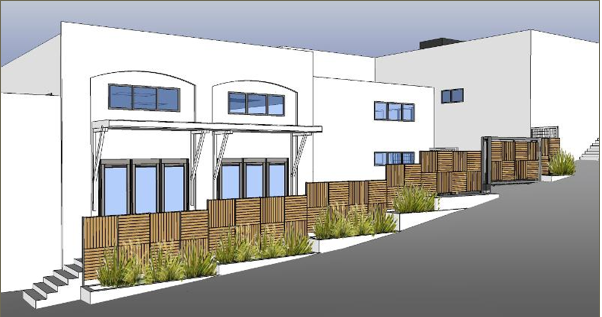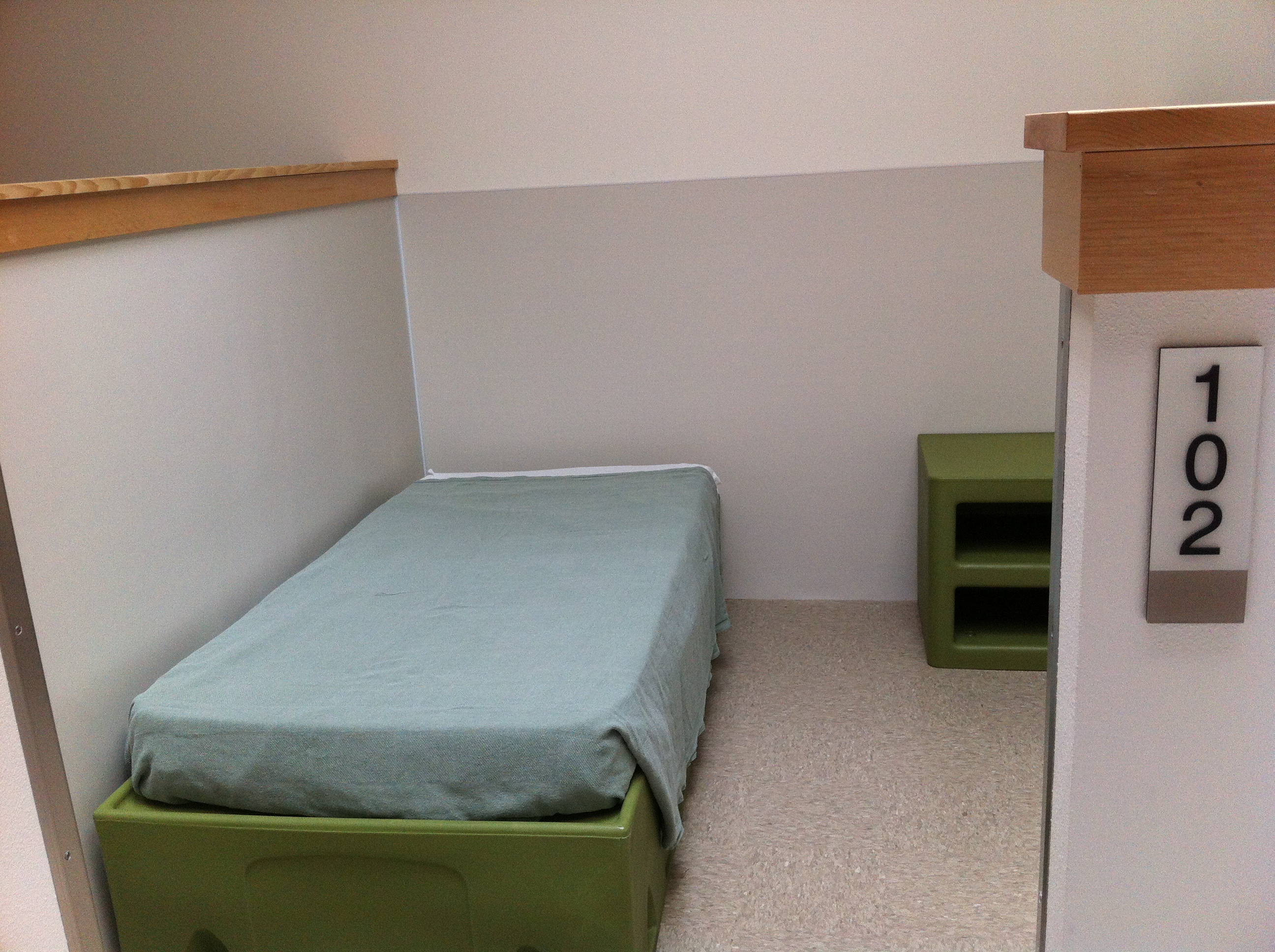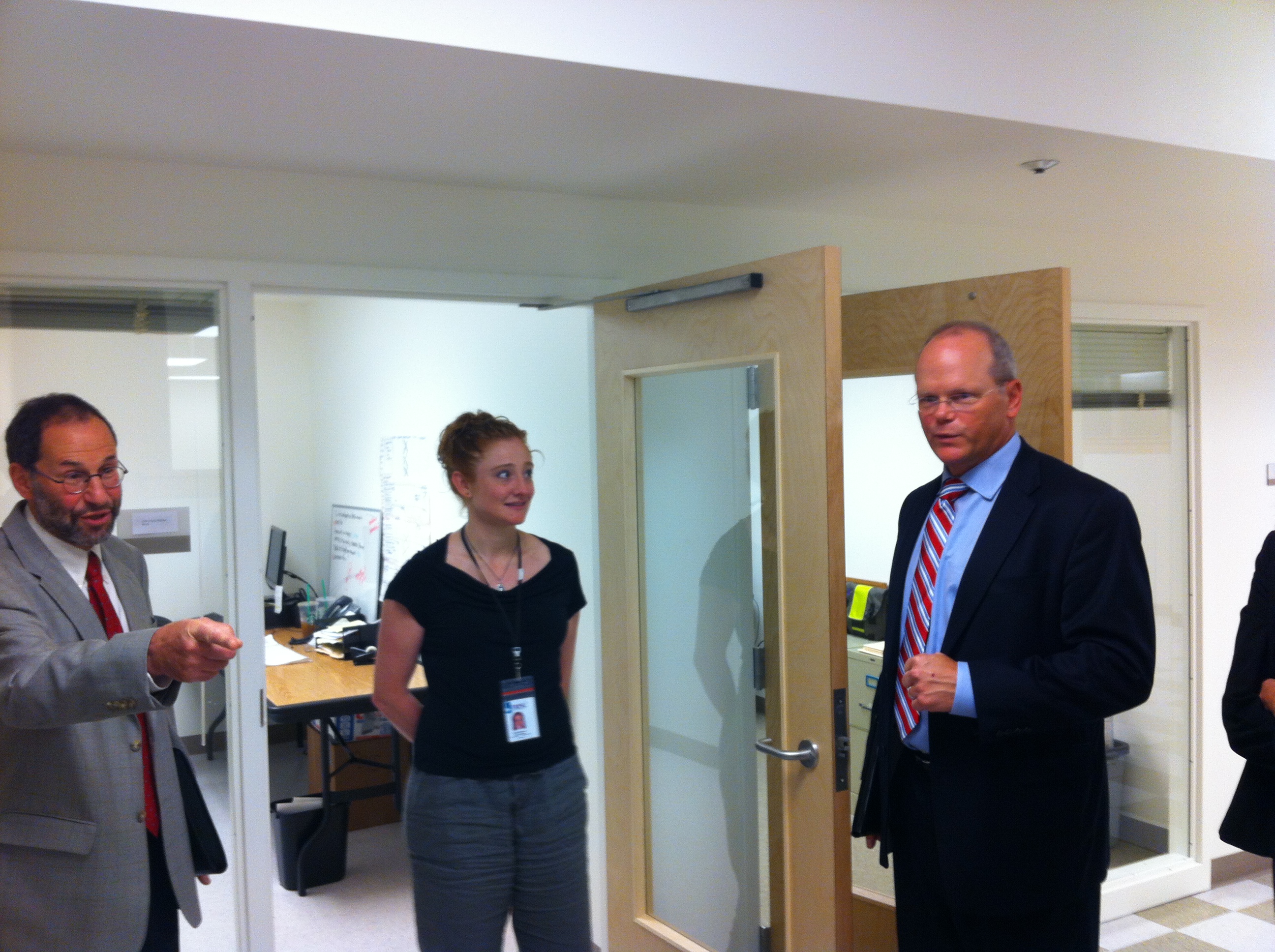 DESC’s new Crisis Solutions Center on 1600 South Lane Street (Image: DESC)
DESC’s new Crisis Solutions Center on 1600 South Lane Street (Image: DESC)
In the past, when Seattle police officers responded to calls regarding somebody exhibiting symptoms of mental illness, they had three options: 1) Take them to jail 2) Leave them be 3) Take them to the ER.
“None of those options work well or are very cost effective, and they don’t treat the causes underlying the behavioral problems,” Nicole Macri, director of Administrative Services at the Downtown Emergency Service Center (DESC) said. “In fact, going to jail almost always disrupts care strategies. The options police had for handling these situations ran counter to resolving crises.”
With the opening of the new DESC Crisis Solutions Center this month, there will be a fourth option that is promising to change the system completely.
 The reality of the situation. One of the center’s holding areas (Image: Central District News with permission to CHS)
The reality of the situation. One of the center’s holding areas (Image: Central District News with permission to CHS)
Police, fire and medics in King country can now refer mentally ill to the Crisis Center at 1600 South Lane Street, which offers a 72-hour rehabilitation program to help treat rather than punish those who need it.
“We do an evaluation and an assessment, we find out ‘Do they need access do food? Do they need rest?’ We give one on one counseling, intensive treatment,” Macri said. “We find out, ‘Can you meet your basic life needs?’ and we try to help them take care of those.”
The goal with the 72-hour program is to resolve the current crisis, then get patients connected to help or support services with a detailed discharge plan.
First responders at incidents involving mentally illness or a chemical dependency crisis have the referral option, but DESC will also have its own Mobile Crisis Team that can respond independently. The Mobile Crisis Team can be dispatched across the county to perform medical assessments and provide treatment directly.
 County Prosecutor Dan Satterberg during the center’s recent open house (Image: Central District News with permission to CHS)
County Prosecutor Dan Satterberg during the center’s recent open house (Image: Central District News with permission to CHS)
The central neighborhoods of the city where masses of humanity mix with regularity and so many people suffering from mental illness move through, live and work in or hang out around will likely see the most activity utilizing the new center. It can be a challenging situation for Capitol Hill residents and businesses to decide how best to handle situations when somebody is not well, needs help and is causing a disturbance.
“There’s a lot more people on the street that shouldn’t be,” one Capitol Hill cafe owner tells CHS. “I don’t call police because I want them to go to jail.” The owner said she hopes the crisis center will provide a better way for police to deal with the situations that arise at her cafe.
The Crisis Solutions Center will also offer a longer two-week step down program for those who need more than just the 72 hour treatment. If the patient still needs help after two weeks, short term housing will be found and the patient will be provided with a plan for moving forward. Overall, the center will have 46 beds with a 1:5 staff to patient ratio.
The Crisis Solutions Center is part of a larger Mental Illness and Drug Dependency (MIDD) Action Plan. In 2007, the King County Council voted that 1/10 of 1% on sales tax revenue would go towards diverting mentally ill from jails and the ER by providing therapy and due treatment. Most of the funding for the new DESC center came from the tax.
Residents in the neighboring area met the crisis center with strong opposition last year, challenging the legality of the center as well as alleging that the center was in fact a jail. It remains to see how many fears about the new facility were warranted but when it comes to finding new and better ways to help the people Seattle’s emergency responders deal with so often, it’s hard to see the DESC as anything but progress.



Finally not just sweeping things under the run. It’s good to hear that we are finally growing up as a city.
@ Doug Carter – Yeah, we are sweeping what is clearly a major Seattle and regional problem into neighborhoods who can least manage and handle yet more mentally ill and or addicted people being housed or helped within their boundaries.
It is long past time for the City’s true middle and upperclass neighborhoods to put their feel good bumper stickers into action and start to absorb and welcome these type of projects into their backyards instead of expecting Jackson Place, Delridge, The Rainier Valley and Aurora to soak them all up.
[…] with mental illness don’t need to be locked up in Federal prisons, and referenced the new Mobile Crisis Unit that debuted last year to serve as a middle ground solution. Rather than putting the mentally ill […]